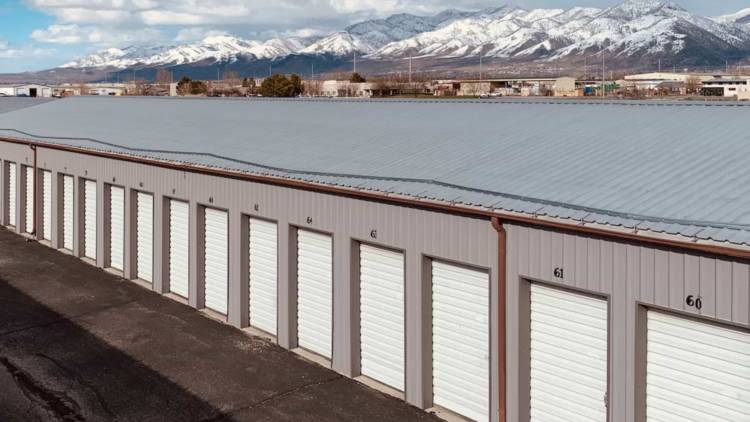Investing in self-storage facilities provides investors with the opportunity to diversify portfolios through the addition of non-traditional real estate to generate stable income and participate in the growth of this asset class.
Suitability
Self-Storage is suitable for mid-to-longer-term investors seeking to generate stable income as an alternative to investing in publicly traded Real Estate Investment Trusts (REITs), bonds or GICs or for those seeking potential returns in the low teens, without the volatility of equity markets.
Why invest in
Self Storage?
Professional Management
By working with a professional manager who has experience and expertise in managing real estate properties and specifically self-storage, investors can invest in a geographically diversified and professionally managed basket of self-storage facilities.
Efficient Operations
Self-storage facilities, in general have lower labour, operating and maintenance costs compared to other real estate asset classes
Strong Demographic Support
Self-storage provides investors the opportunity to participate in the demographically driven housing shortage trend and Baby Boomer trend of downsizing.
Consistent Occupancy
Occupancy in self-storage tend to be persistent in the 80-90% range and the short-term structure of leases allows the flexibility to optimize pricing.
Performance Drivers Agnostic Business Cycles
Self-storage’s demand drivers (such as Dislocation, Downsizing, Disaster, Discover, Death, Densification) are typically agnostic to business cycles. Many of the life events occur entirely independent of economic environments. Others, such as “downsizing", are created by a weak economy.
Electronically Monitored
Minimal tenant interaction, as technological advances allow multiple locations to be managed remotely through monitoring stations and tenant electronic access allowing operators to minimize costs.
Good Supply and Strong Demand
Self-storage has good appreciation potential based on supply and demand factors.
Consolidation Opportunity
Self-storage, like other real estate asset classes, allows managers to build consolidated positions at low costs and sell to major corporations or pension plans who are willing to pay premiums for large blocks rather than buying individual properties.
Consistent, Predictable Income
Monthly income streams and dividend reinvestment opportunities are generally available.
Registered Account Eligible
Depending on the type of purchase, self-storage may be eligible for registered accounts (RRSP, TFSA, etc.) and dividend reinvestment discounts.
Risks & Volatility
Understanding risks and volatility is critical to being successful investing in both public and private markets and both share similar risks, but others are quite different.
- Manager Risk
- There is always the possibility that a manager may make a series of bad investments or allow self-interest to put investment capital at risk. Through our due diligence and manager selection process, we work to minimize this risk.
- Liquidity Risk
- Investments in Self Storage or other Private Real Estate are less liquid than traditional investments, such as publicly-traded equities and bonds.
- Investors may have limited options to sell their shares or exit the investment before the end of the investment term.
- Private funds can be “gated” (investors may be restricted or limited in their ability to add or withdraw funds) mostly due to high volumes of redemptions during short periods of time, which can last for long periods of time. This has happened when the reputation of the fund or manager comes into question or when significant losses are experienced.
- This lack of liquidity could result in challenges if you need to access your capital unexpectedly.
- Valuation and Transparency
- Investments in Self Storage or other Private Real Estate are not subject to the same level of regulatory oversight and reporting requirements as publicly-traded REITs.
- This can lead to challenges in accurately valuing the underlying real estate assets and a lack of transparency regarding the financial performance and operations.
- Most self-storage opportunities use leverage to improve returns, which is normal in real estate investments.
- Limited Exit Options
- Exiting investments in Self Storage or other Private Real Estate can be more complex and restricted compared to publicly-traded REITs.
- There might be restrictions on selling your shares to other investors, and the process could be subject to certain limitations or conditions, potentially impacting your ability to realize returns on your investment.
- To mitigate these risks, thorough due diligence and partnering with experienced management teams are essential.
- Volatility
- Private investments, such as private debt and equity, are not traded on public exchanges. Their valuation and trading occur less frequently and are often based on third-party valuations.
- This is advantageous as it removes investor stress caused by volatility of publicly traded securities, but investors should understand and be comfortable with pricing mechanisms.
Liquidity
- Many self-storage funds have minimum lock-up periods in the range of two years. Monthly liquidity after the lock-up.
Potential Returns
- Every investment has many moving parts so predicting the future should be used for estimation purposes only.
- Generally, target ranges for US professionally managed storage funds, is in the 12 to 15%.
Taxation
- Monthly distributions are generally return of capital which allows investors to defer taxes until the sale of the property which may be a good tax strategy for investors who anticipate lower tax rates in the future.

